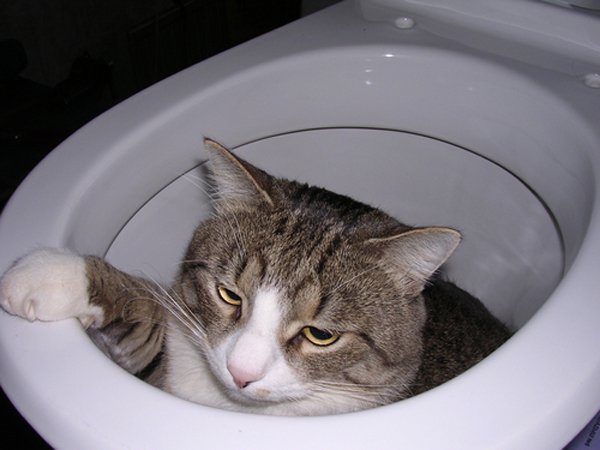Reasons Flushing Cat Poop Down Your Toilet Is Bad - Tips for Correct Disposal
Reasons Flushing Cat Poop Down Your Toilet Is Bad - Tips for Correct Disposal
Blog Article
What are your opinions concerning How to Dispose of Cat Poop and Litter Without Plastic Bags?

Introduction
As pet cat proprietors, it's vital to be mindful of just how we throw away our feline friends' waste. While it might appear convenient to purge feline poop down the toilet, this practice can have harmful effects for both the setting and human health.
Alternatives to Flushing
Fortunately, there are safer and a lot more responsible methods to take care of cat poop. Think about the adhering to choices:
1. Scoop and Dispose in Trash
One of the most typical approach of getting rid of pet cat poop is to scoop it right into a naturally degradable bag and throw it in the garbage. Be sure to utilize a committed clutter inside story and get rid of the waste without delay.
2. Use Biodegradable Litter
Go with biodegradable cat trash made from products such as corn or wheat. These trashes are environmentally friendly and can be safely taken care of in the trash.
3. Hide in the Yard
If you have a yard, think about hiding cat waste in a marked area away from veggie gardens and water sources. Make sure to dig deep sufficient to avoid contamination of groundwater.
4. Set Up a Pet Waste Disposal System
Buy an animal waste disposal system particularly developed for pet cat waste. These systems utilize enzymes to break down the waste, lowering odor and ecological influence.
Health and wellness Risks
Along with environmental concerns, purging pet cat waste can also posture health and wellness dangers to humans. Pet cat feces might consist of Toxoplasma gondii, a parasite that can create toxoplasmosis-- a potentially severe disease, specifically for pregnant females and individuals with weakened body immune systems.
Ecological Impact
Purging feline poop presents harmful virus and parasites right into the water, presenting a significant risk to aquatic ecological communities. These impurities can adversely affect aquatic life and compromise water quality.
Conclusion
Liable animal possession prolongs past offering food and sanctuary-- it additionally involves proper waste monitoring. By avoiding flushing cat poop down the commode and choosing alternate disposal methods, we can lessen our environmental footprint and safeguard human health.
Why You Should Never Flush Cat Poop Down the Toilet
A rose by any other name might smell as sweet, but not all poop is created equal. Toilets, and our sewage systems, are designed for human excrement, not animal waste. It might seem like it couldn’t hurt to toss cat feces into the loo, but it’s not a good idea to flush cat poop in the toilet.
First and foremost, assuming your cat uses a litter box, any waste is going to have litter on it. And even the smallest amount of litter can wreak havoc on plumbing.
Over time, small amounts build up, filling up your septic system. Most litter sold today is clumping; it is made from a type of clay that hardens when it gets wet. Ever tried to scrape old clumps from the bottom of a litter box? You know just how cement-hard it can get!
Now imagine just a small clump of that stuck in your pipes. A simple de-clogger like Drano isn’t going to cut it. And that means it’s going to cost you big time to fix it.
Parasitic Contamination
Believe it or not, your healthy kitty may be harboring a nasty parasite. Only cats excrete Toxoplasma in their feces. Yet it rarely causes serious health issues in the cats that are infected. Most people will be fine too if infected. Only pregnant women and people with compromised immune systems are at risk. (If you’ve ever heard how women who are expecting are excused from litter cleaning duty, Toxoplasma is why.)
But other animals may have a problem if infected with the parasite. And human water treatment systems aren’t designed to handle it. As a result, the systems don’t remove the parasite before discharging wastewater into local waterways. Fish, shellfish, and other marine life — otters in particular — are susceptible to toxoplasma. If exposed, most will end up with brain damage and many will die.
Depending on the species of fish, they may end up on someone’s fish hook and, ultimately on someone’s dinner plate. If that someone has a chronic illness, they’re at risk.
Skip the Toilet Training
We know there are folks out there who like to toilet train their cats. And we give them props, it takes a lot of work. But thanks to the toxoplasma, it’s not a good idea.

Do you enjoy more info about How to Dispose of Cat Poop and Litter Without Plastic Bags? Make a short review down the page. We would be interested to find out your thoughts about this posting. We hope to see you back again later on. Appreciated our piece of writing? Please share it. Help another person find it. Thank you so much for going through it.
Get Started Report this page